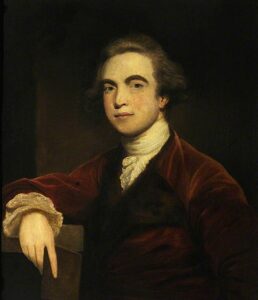On August 15th, 1947, amidst the electrifying atmosphere of India’s independence, a single instrument resonated through the historic Red Fort in Delhi – the shehnai, played by the maestro, Ustad Bismillah Khan. This wasn’t just a musical performance; it was a historic moment etched into the fabric of India’s freedom struggle.

A Melodious Celebration of Freedom:
The air crackled with a sense of liberation as India finally cast off the shackles of British rule. Bismillah Khan’s soul-stirring shehnai melodies became the soundtrack to this momentous occasion. The uplifting notes, rich with tradition and imbued with the emotions of a newly independent nation, filled the hearts of millions with pride and hope.
A Nation Awakens to Its Own Music:
Prior to this event, the shehnai, while deeply cherished in Indian classical music, wasn’t widely recognized as a national instrument. Bismillah Khan’s performance on that momentous day brought the shehnai to the forefront of the national consciousness. It became a symbol of India’s rich cultural heritage and a powerful expression of its newfound freedom.
A Symbol of Unity in Diversity:
The significance of Bismillah Khan’s performance transcended the realm of music. A devout Muslim himself, he was known for performing at both Hindu and Muslim ceremonies. His presence at the Red Fort, playing for a nation grappling with the scars of partition, served as a powerful symbol of national unity and religious harmony.
A Global Stage for Indian Music:
This historic performance catapulted Bismillah Khan and the shehnai onto the world stage. His music, deeply rooted in the Indian classical tradition, captivated a global audience. This newfound international recognition not only elevated Khan’s stature but also enhanced India’s cultural prestige on the world map.
A Legacy of Music and Independence:
Bismillah Khan’s decision to play the shehnai at the Red Fort wasn’t just a performance; it was a powerful act of patriotism. His music resonated not just on that day, but for generations to come, serving as a constant reminder of the struggles and triumphs of India’s independence movement.
FAQs: Bismillah Khan’s Historic Shehnai Performance at the Red Fort (15th August 1947)
1. What was the significance of Bismillah Khan playing the shehnai at India’s Independence Day celebrations?
Bismillah Khan’s performance held immense significance for several reasons:
- Celebration of Freedom: His music marked a joyous and momentous occasion, symbolizing India’s liberation from British rule.
- First Musical Greeting to the Nation: He was the first musician to greet the newly independent nation with his instrument, filling the air with a sense of hope and freedom.
- Symbol of Unity: Despite being a Muslim, Khan was known for performing at both Hindu and Muslim ceremonies. His presence at the Red Fort served as a symbol of religious harmony in the nascent nation.
- Global Recognition: This event brought international recognition to the shehnai and Bismillah Khan himself, showcasing India’s rich cultural heritage.
2. Why was the shehnai not widely known before Bismillah Khan’s performance?
While cherished in Indian classical music, the shehnai wasn’t a national instrument before this event. Bismillah Khan’s performance thrust it into the national spotlight, making it a symbol of India’s cultural identity.
3. What impact did this performance have on Bismillah Khan’s career?
This historic performance catapulted Bismillah Khan to national and international fame. He became synonymous with the shehnai, and his music garnered appreciation from audiences worldwide.
4. Can you listen to Bismillah Khan’s shehnai music online?
Yes, you can find recordings of Bismillah Khan’s shehnai performances online through various music streaming services and platforms like YouTube.
5. Is the Red Fort performance considered a turning point for Indian classical music?
While not necessarily a turning point, Bismillah Khan’s performance did significantly raise the profile of Indian classical music on a global stage. It showcased the beauty and depth of this rich musical tradition to a wider audience.


